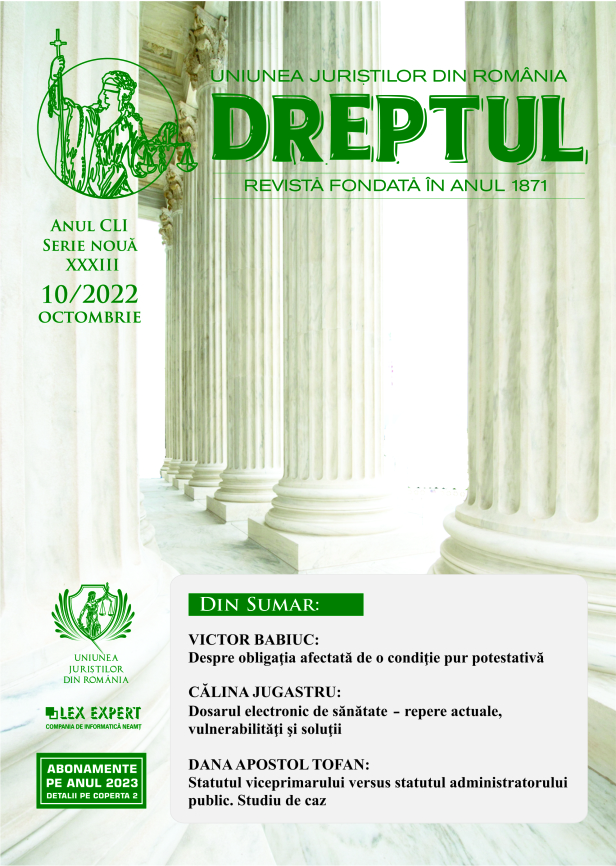Proprietatea fiduciară și Codul civil român. Scurtă analiză istorică și comparată
The fiduciary property and the Civil Code of Romania. A brief historical and comparative analysis
Author(s): Anthony Matthew Dima MurphySubject(s): History of Law, Civil Law, Comparative Law
Published by: Uniunea Juriștilor din România
Keywords: fiducia; fiduciary; beneficiary; fiduciary property; fiduciary patrimony;
Summary/Abstract: This article examines the fiduciary property through a historical and comparative analysis of the legislation and doctrine of Québec, France and Romania. The contemporary fiducia ought not to be confused for the Roman fiducia, whose name it borrowed. As a result of the reception of the Anglo-American trust in the mixed legal system of the Canadian province of Québec, the fiducia has been the subject of subsequent legal transplants into the continental tradition. The Romanian legislator, inspired by its French counterpart, took over the restrictions brought to the fiducia in said legal system. In the matter of real rights, this legislative option also meant the rejection of the doctrine of an ownerless patrimony, an innovation of the legal system of Québec, in search of a continental instrument to replace the division of title between the legal holder (trustee) and the equitable one (beneficiary), as enshrined in the Common Law tradition. Commenting on the solutions proposed within French legal literature (including the classification as a method of ownership or even as a result of dismemberment), the author argues that only a combination of them may fully explain the mechanism of the fiduciary ownership. In essence, the fiduciary owner acts like a true owner, but by virtue of a title held under a resolutive condition, while the beneficiary enjoys a virtuality of law in his capacity as an owner under a suspensive condition. However, the constraints to which the right of ownership transferred to the trustee is subject, in terms of its exclusivity and perpetuity, may be explained by the fiducia contract itself, the effects of which are assimilated to the conventional limitation operated, for example, through an inalienability clause. In other words, the fiduciary owner may be considered an owner under a resolutive condition, yet he remains subject to the conventional limitations brought upon by the very nature of the fiduciary operation.
Journal: Revista „Dreptul”
- Issue Year: 2022
- Issue No: 10
- Page Range: 31-44
- Page Count: 14
- Language: Romanian
- Content File-PDF

